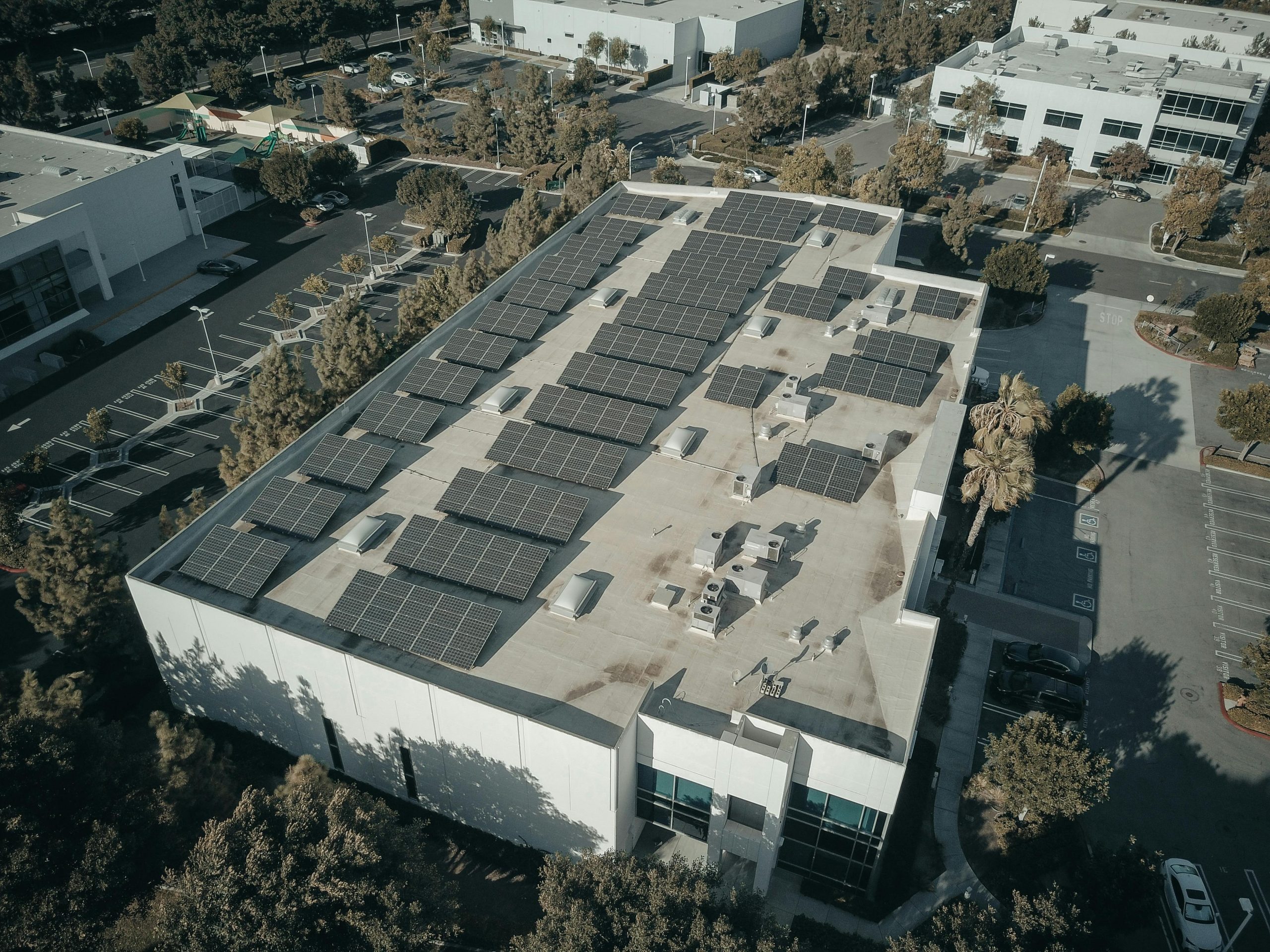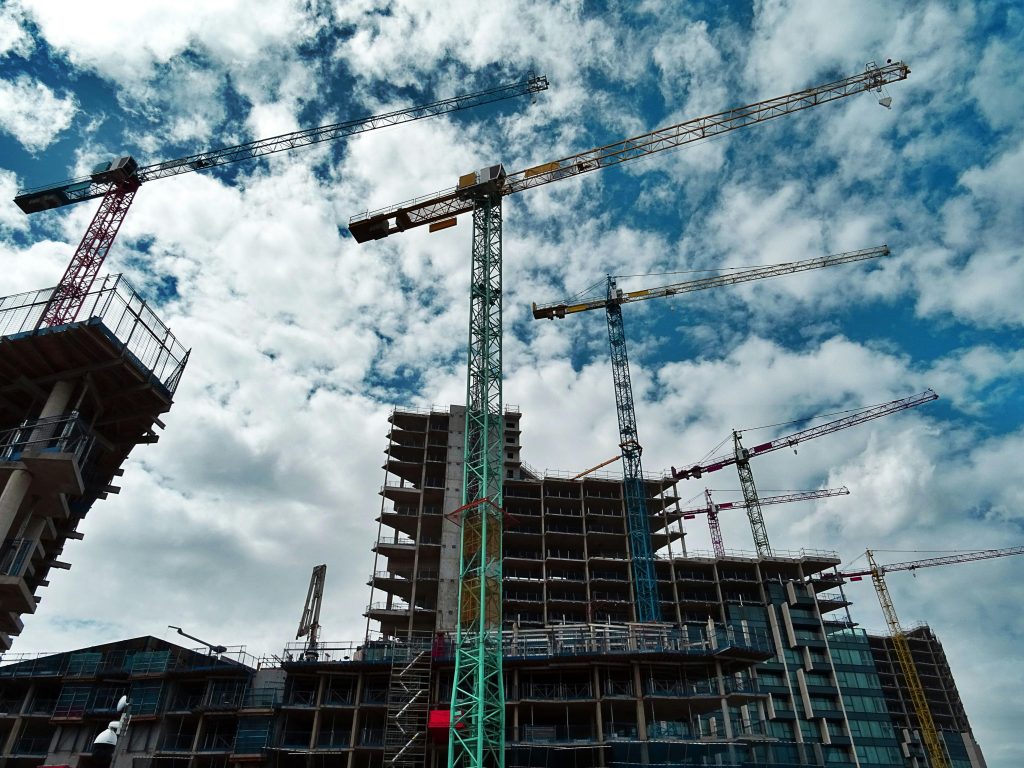- Commercial expansion undeniably impacts the environment, necessitating a strategic approach for sustainable growth.
- Rapid development results in excessive resource consumption, waste generation, and habitat disruption, posing tangible environmental and reputational risks.
- Businesses must pivot towards sustainable practices, adopting a holistic approach to balance economic growth with ecological preservation for long-term success.
- Water management emerges as a critical component, addressing pollution, erosion, and the need for eco-friendly systems to align with an eco-conscious consumer base.
- Innovative technologies are transformative in optimizing energy efficiency and managing resources, positioning businesses as pioneers in eco-conscious development.
In the dynamic landscape of modern commerce, understanding the environmental footprint of commercial development is no longer an optional consideration but a strategic imperative. As businesses surge forward, so does their impact on the environment. This article dives into the critical nexus between commercial expansion and ecological responsibility.
Focusing on water management as a crucial component, the article dissects the intersection of profit and sustainability. From cutting-edge technologies to regulatory landscapes, this exploration navigates the corporate imperative to comprehend, mitigate, and thrive in an era where eco-conscious progress is not just a moral duty but a savvy business strategy.

The Environmental Impact of Commercial Development
In the dynamic business world, commercial development’s environmental impact is an integral conversation that cannot be overlooked. While propelling economic growth, commercial ventures often leave an indelible mark on the environment. The excessive resource consumption, staggering waste generation, and habitat disruption associated with rapid development demand our attention. From depleting natural resources to compromising delicate ecosystems, the toll is palpable. However, in the pursuit of progress, businesses have a golden opportunity to adopt sustainable practices that harmonize economic growth with ecological preservation.
Demand for Materials and Energy
Resource consumption is a pivotal aspect to consider. The relentless demand for raw materials and energy in the construction and operation of commercial structures exacts a toll on our finite resources. Simultaneously, waste generation, a byproduct of development, contributes to landfills and pollution. Habitat disruption, stemming from urban expansion, threatens biodiversity and the delicate balance of ecosystems.
Holistic Approach
Acknowledging this, the onus is on businesses to pivot towards sustainable practices. The need for a holistic approach that balances economic growth with ecological preservation has never been more pressing. Adopting sustainable building practices, harnessing innovative technologies, and adhering to eco-friendly regulations are not just ethical choices; they are strategic imperatives. As businesses navigate the terrain of commercial development, integrating sustainability isn’t just a nod to environmental stewardship; it’s a visionary investment that aligns prosperity with planet preservation. In commerce, sustainability is not a choice; it’s the cornerstone of lasting success.
Water Management in Commercial Development
In the dynamic world of commercial development, the management of water resources emerges as a critical component, warranting our strategic attention. At its core, water management involves the reasonable control and distribution of water resources to meet the needs of a growing commercial landscape. It is a multifaceted approach that extends beyond mere consumption, delving into the broader impact on the environment.
Significant Role
While essential for various commercial activities, water also plays a significant role in pollution and erosion. Runoff from urban areas often carries pollutants, adversely affecting water quality and contributing to soil erosion. The environmental repercussions are tangible and pose a reputational risk for businesses navigating the sustainability landscape.
Water Management Systems
Recognizing this, incorporating eco-friendly water management systems in commercial projects is more than a trend; it’s a business imperative. Sustainable water management mitigates the adverse environmental impact and aligns with an increasingly eco-conscious consumer base. From innovative stormwater retention systems to water recycling initiatives, businesses can integrate eco-friendly practices seamlessly. Businesses can also work with a reputable company offering reliable stormwater management services. The company should have the knowledge and experience to deal with the situation.
Proactive Stance
The importance of such initiatives extends beyond compliance; it’s a proactive stance toward environmental stewardship. By adopting and promoting eco-friendly water management, businesses safeguard precious resources and position themselves as champions of sustainable development. In commercial progress, water management isn’t just a technicality; it’s a strategic commitment to building a resilient and responsible future.
Sustainable Building Practices

In the ever-evolving landscape of commercial development, sustainable building practices stand as beacons of innovation and responsibility. Green building, guided by robust certifications, has become the lodestar for businesses aiming to redefine their environmental impact positively.
Green Building Concepts
Green building concepts revolve around resource efficiency, energy conservation, and minimal environmental impact. Certifications such as LEED (Leadership in Energy and Environmental Design) and BREEAM (Building Research Establishment Environmental Assessment Method) are benchmarks, ensuring structures adhere to stringent eco-friendly criteria.
Sustainable Construction
The benefits of embracing sustainable construction are manifold. Beyond the apparent reduction in carbon footprint, these practices lead to operational cost savings through energy efficiency and resource optimization. Forward-thinking businesses recognize that sustainable structures are environmentally responsible and financially prudent investments.
Eco-Conscious Retail Spaces
Several commercial developments exemplify the success of sustainable practices. From cutting-edge corporate offices to eco-conscious retail spaces, these structures showcase the harmonious marriage of functionality and environmental stewardship. Apple Park, with its solar-panel-clad roof and energy-efficient design, and the Edge in Amsterdam, boasting a green roof and rainwater harvesting, epitomize the transformative potential of sustainable building practices.
The Role of Technology in Eco-Conscious Commercial Development
In the fast-paced realm of commercial development, technology stands as a transformative force, propelling businesses toward a future where eco-consciousness is synonymous with innovation. Embracing innovative technologies for energy efficiency is pivotal for modern commercial buildings. From state-of-the-art HVAC systems to intelligent lighting controls, businesses can optimize energy consumption, leading to environmental and financial benefits.
Smart Systems
Smart systems, another hallmark of eco-conscious commercial development, extend beyond energy efficiency. These integrated technologies enable businesses to manage resources judiciously and reduce waste through real-time monitoring and data analytics. Smart sensors in offices, for instance, can adjust lighting and temperature based on occupancy, ensuring optimal resource utilization.
Enhance Environmental Sustainability
Technological advancements enhance environmental sustainability and provide businesses with a competitive edge. The integration of these solutions aligns with the evolving expectations of a socially responsible consumer base and regulatory landscape. As businesses strive for a harmonious balance between growth and environmental preservation, technology emerges as the linchpin for a future where commercial development isn’t just smart but eco-conscious at its core. In the interconnected world of commerce, embracing these innovations isn’t just a strategic choice; it’s a visionary investment in a sustainable and resilient future.
Understanding the environmental footprint of commercial development is not just an ethical consideration; it’s a strategic imperative. As businesses navigate the delicate balance between growth and ecological preservation, the imperative to adopt sustainable practices becomes clear. From mitigating resource consumption to embracing eco-conscious technologies, this journey isn’t just about environmental stewardship but future-proofing success. In this era of heightened environmental awareness, businesses championing sustainability aren’t just industry leaders but pioneers shaping a responsible and resilient future. The journey towards eco-conscious progress isn’t an option; it’s the only route to lasting prosperity in the evolving business landscape.


